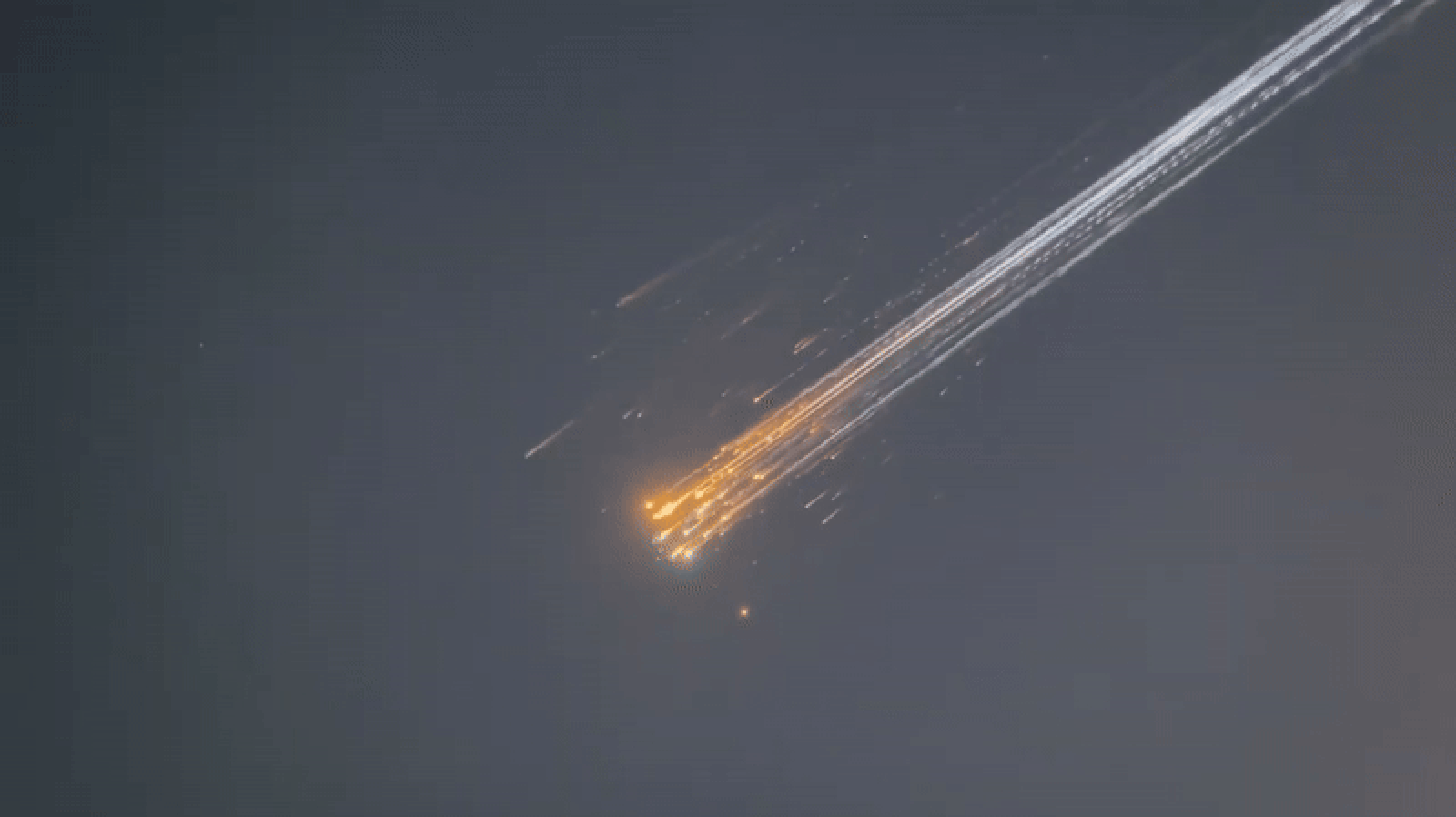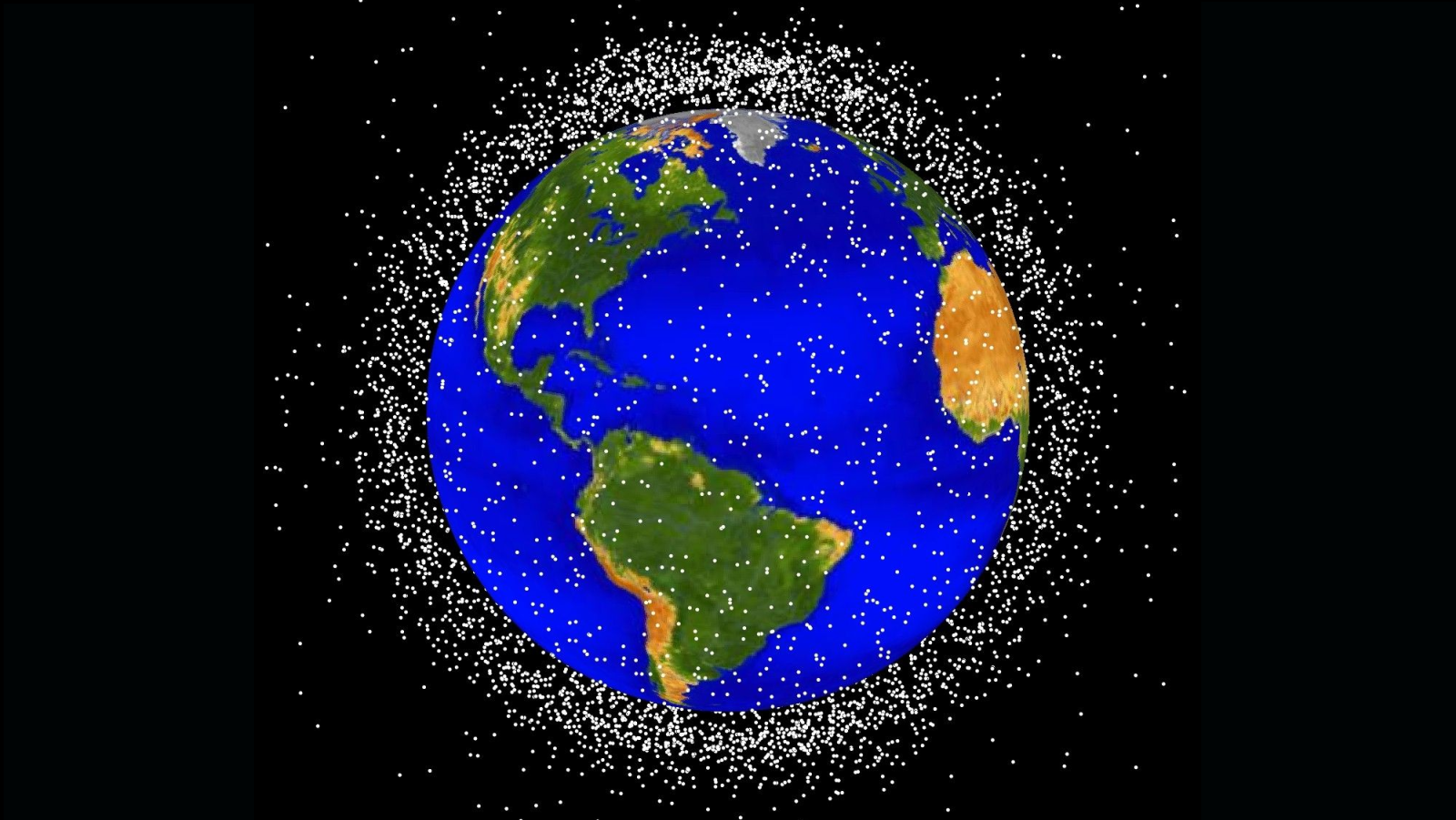Risk Of Falling Space Junk Hitting A Plane Is Only Increasing
As the number of flights around the world grows and the amount of junk in space rises, the chances of a collision between the two is only increasing
Scientists predict that there are currently more than 30,000 pieces of space junk orbiting above the Earth, and some are large enough to make their way back down to dry land with little warning. On average this happens about once every day, but that rate could rise as private space travel ramps up. Aviation safety experts are worried as a new study has warned that the chance of a collision between a commercial jet and a piece of space junk is on the rise.
Falling space junk has already disrupted air travel this year, with debris from a Space X test flight forcing flights over the Caribbean to delay or divert. In Australia, airline Qantas reported that its flights were also delayed by up to six hours as a result of falling space junk.
In both instances, no plane was hit by the falling debris, but a new report warns that the risk of this happening is rising, reports Space.com. The increasing risk of space junk hitting a plane when it falls back to earth comes as private space exploration ramps up and the number of flights increases.
In the past seven years, the number of space rocket launches has increased from about 80 a year to more than 140 on average. At the same time, the number of commercial flights operating around the world is projected to increase above 38 million this year. If space junk falls into increasingly congested airspace, authorities will need to take steps to ensure passenger safety:
"In short, there is a 26 percent chance of an uncontrolled space debris reentry in busy airspaces such as the Northeastern United States or Northern Europe each year," said Ewan Wright at the University of British Columbia, Vancouver, Canada.
"Authorities may choose to close airspace in response, as occurred in Europe in 2022, but this has economic impacts and further safety consequences," Wright told Inside Outer Space.
In an open access journal titled Airspace Closures Due To Reentering Space Objects, which was published by Wright and colleagues Aaron Boley and Michael Byers, the experts warn that there are already 2,300 rocket bodies orbiting earth just waiting to fall back in an uncontrolled manner. Space junk like this poses a real risk to air travel due to the unpredictable nature of its fall back to the surface. Plus, pieces like rocket bodies are large enough to survive re-entry through Earth's atmosphere.

As such, the paper's authors are calling on space agencies and private companies to invest more in the return of their space junk once it's completed its mission. This could include more controlled returns to Earth and even a designated crash site in the ocean that rocket remnants should be directed to. If a policy like this were implemented, commercial airliners could be steered well clear of the splash zone, as the paper explains:
Uncontrolled rocket body reentries are a design choice, not a necessity. With engines that can reignite and improved mission designs, operators can conduct controlled reentries, directing the rocket body into a remote area of the ocean away from people and aircraft. But currently, fewer than 35% of launches conduct controlled rocket body reentries. If controlled reentries were used by all operators, the risks to people and aircraft would be greatly reduced.
If rocket operators took control of their own cleanup operations, it would mean that government agencies didn't need to propose multi-million dollar projects to clean up all the space junk that's currently orbiting. But I guess for some space launch companies, the trash is out of sight and out of mind.
